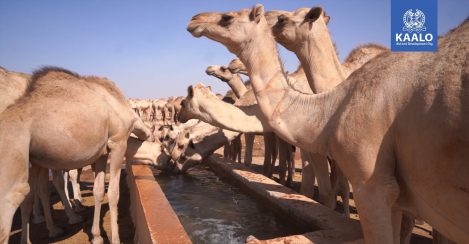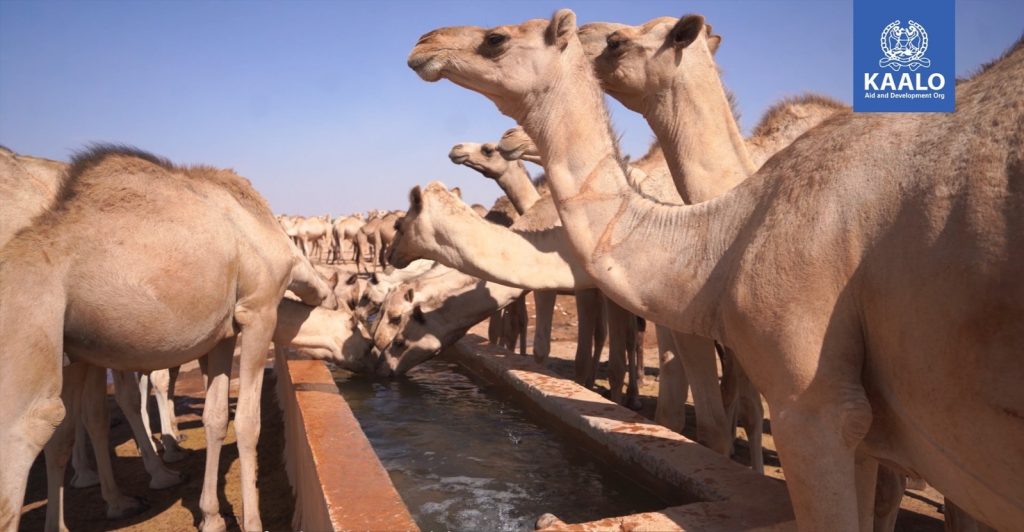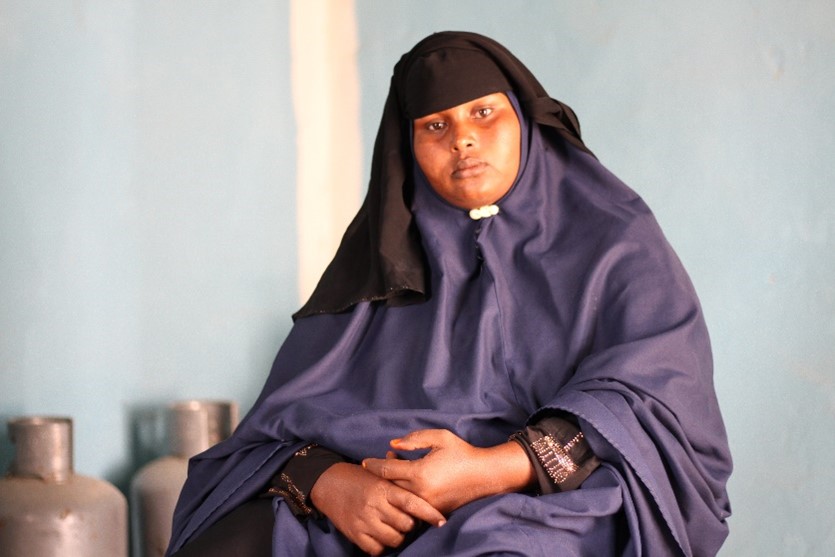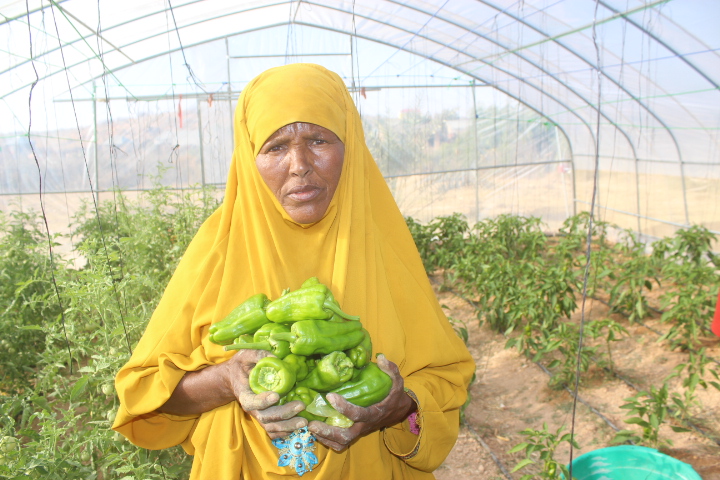Background and Overview
Somalia, a country located in the horn of Africa region has endured nearly three decades of lawlessness, instability, political crisis and recurrent environmental shocks. The threats and disasters relating to the climate change, extremist militias and fragmentation and dysfunctions of the state are significant and still real in many parts of the country in more than three decades.
The recurrent drought in the country had sternly affected the women, children, minority communities and the elderly across many regions, villages and towns in Somalia. According to the World Bank on Somali Poverty and Vulnerability Assessment Report from 2019, showed that nearly 7 in 10 Somalis live below the poverty line, mostly those living in rural villages and Internally Displaced Person Settlements
In the year 2023, the food and nutrition situation recorded an improvement across many parts of Somalia although the situation of women and children remained of concern. The Food and Nutrition Analysis Unit and Partners estimated that global wasting rates improved from 15.9 per cent in 2022, to 12.4 per cent in 2023 (FSNAU, September 2023).
According to (UN OCHA, 2023) from August 2023 to July 2024, around 1.5 million children under age five, roughly equivalent to 40 per cent of Somalia’s under-five child population, are projected to experience acute wasting. This includes about 330,630 severe cases. An estimated 330,630 children will need specialized care for severe wasting. Impacts of ELNino on the nutrition status of children remains to be seen as more than 2.4 million people were affected, 1.2 million people displaced with 118 recorded deaths
The end of December 2023 saw displaced households gradually returning to their homes owing to dry conditions that had prevailed across most parts of the country. However, in Somalia’s 2024 Needs, Humanitarian Response Plan (NHRP), in addition to the ongoing conflicts, insecurity and cholera, potential flooding in the next rain season poses high risks which are anticipated to generate above-average humanitarian impacts in 2024.Subsequently, the Somalia humanitarian community has been engaged to strengthen planning for readiness and anticipatory action (AA) ahead of the 2024 Gu floods.
In addition, the humanitarian community in the country has retained to help to the needy populations wherever the delivery accessibility is possible through field team efforts, or through Local Non-Governmental partners, like KAALO Aid and Development Organization; for that matter. Humanitarian and aid agencies reported that, water shortages are at critical levels exposing vulnerable people to additional risks. An estimated eight million people (62 per cent of whom are children) need immediate WASH assistance.
However, KAALO Aid & Development Organization which was established 1991, is a humanitarian and development Organization in Somalia, aims creation of free society from ignorance and poverty in order to attain a sustainable development, improve livelihood of Somali society through provision of basic needs, in sustainable environmentally sound and right based approach.
The development partners/agencies that the aid organization, has worked with in the past include: Diakonia, Norwegian Church Aid, UN-Habitat, UNPD Somalia, UNHCR, UNESCO, ILO, IOM, FAO, NED, DF, IRC, UNICEF, DPA Oxfam, CARE, SIDA and the Ministry of Foreign Affairs of the Netherlands. In the meantime, the organization with partnership GFFO/Oxfam has implemented project titled “Integrated Multi-sector response to (Triple threat) Covid-19, Drought and Locust in Somalia.
GFFO Project’s overall Objective;
- To contribute to the reduction of acute humanitarian needs and increase the dignity of most vulnerable men, women and children affected by drought in Puntland.
The project’s Specific Objectives include;
- To improve access clean and safe water supply for 37,600 IDPs and most vulnerable host communities and improved hygiene practices for men, women and children living in rural areas in Puntland, Somaliland
- To improve access food and income of 48,840 of vulnerable women, men, girls; boys through immediate life and livelihoods saving assistance and livelihood recovery support through cash and market-based approaches
- To strength 21,000 of crisis-effected individuals composing of men, women, girls and boys in target communities through protection capacities and improved safety and dignity through a community-based protection response
Brief Introduction
The KAALO Aid and Development Organization aims to elaborate in this narrative report how the WASH intervention has improved the living conditions of the local population in the Gerihel settlement in the Bari province of Puntland regional state of Somalia.
Every member of the community, including the village leader, Women Forum members, Village Saving & Loans (VSL) members, and Protection Volunteer members—as well as the operator of the solar-installed borehole—had an incredible, one-of-a-kind story to share!
Gerihel- a village of Resilience, Courage
Gardo town is estimated to be 45 kilometers away from the Somali village of Gerihel in Bari region.
There are thought to be 200 households in the community. The local community in the village had experienced hardships, including a recent drought and environmental shocks that destroyed the majority of its cattle, food, water, and other necessities for survival. On the other hand, the people living in Gerihel village exuded a remarkable optimism and hopefulness.
Meanwhile, the local community found solace in resilience and bravery, going forward with unflinching hope and optimism, even in the face of those trying times and when life seemed to be spiraling out of control.
As a result, KAALO’ GFFO Projects’ intervention, which included building latrines, giving out hygiene kits, installing solar lights in homes and on the streets, and installing solar-at the borehole, that significantly improved the living conditions of the local community in Gerihel.
KAALO’s Constructed Latrines Make Real Impact in Gerihel Village, Bari Region
We met 25-year-old Maryam Abdulkadir in Gerihel village, which is in the Bari region under the Gardo district in Puntland. She is a mother of six children and expressed to us how much the construction of latrines by KAALO Aid has improved both her home and the lives of others around her.
She said “Since there was no local latrine, we used to travel a considerable distance from my residence to complete our personal business. I took a risk going outside alone because I’m a woman. In the middle of nowhere, strangers or robbers might catch women. Thus, we no longer urinate in public areas”.
Maryam recounted: “Thanks to KAALO Aid, I’m satisfied. There’s no danger I feel safe and secure”.
KAALO’s Constructed Borehole Making Real Impact on Rural Community in Gerihel

Photo: Camels drinking water in KAALO Aid solar-installed borehole in Gerihel Settlement in Bar Region, Puntland, Somalia
According to the UN report (2022), it estimated that nearly 3.8 million people affected by the climate change in Somalia. Eventually, the climate change in the country has recently badly impacted on the well-being of the socio-economic progress and the general public well-being.
In Somalia, like other most global states, the climate change is without doubt is the most pressing issue currently ravaging and defining challenge in the horn of African nations.
In the displacement-affected areas in Puntland region, or some parts in Somalia; livelihood losses, climate shocks, and environmental degradations could eventually raise local conflicts over resources such as posture land, and water; and could deepen community or livelihood vulnerabilities, or living conditions in the areas could corrode.
We had the pleasure of interviewing 32-year-old Somali camel herder, Jama Gacir Mohamed, a father of five children. He said that his family and his camels, which he used to travel long distances, in the process both of them were affected by the area’s water scarcity.
I used to Suffer Due to Water Shortage: Somali Camel Herder
Gacir said “Before the bohorehole was solar-installed in the area, I used to endure. I could travel long kilometers to look for water for the camels. It was a difficult, harsh experience for me, as a herder! The camels could miss water for three days, or four days some months ago”.
“Now, everything changed for the better. Things are easy, too. My camel is drinking water now in the borehole, as you can see them. So I’m happy”. He stated.
Mohamed’s narrative, the twinkle of hope and willingness was invigorated after KAALO, in with partnership GFFO/Oxfam has implemented project titled “Integrated Multi-sector response to (Triple threat) Covid-19, Drought and Locust in Somalia, and in particular in Gerihel village.
However, the immediate impact of German Federal Foreign Office (GFFO project) on the local residents and small businesses in the village is clearly visible in the area, and recognized by the locals through KAALO interviews. In the process, such success at one point, KAALO was requested to install more solar-street lights and in the house-based solar lights in the village, and modernization of borehole solar-installation, to cover as many livestock and peoples as possible in the future.
KAALO’s Interventions in Gerihel Village are Discernible: Community Leader
Gerihel village community Leader, Mohamed Alishire admitted that KAALO’s both interventions are discernible, real and adds value to the living conditions of the local community. “We are very grateful for the organization on what it had so far implemented in the village. “They are discernible”. Community Leader said, with pride.
Mohamed Alisher, Gerihel Community Leader, 51, and father of 14 children. He stated: “Before KAALO come in implementing this project in the village. There was nothing going on, at the time. Houses, small businesses and streets were too dark during the night.
We were under the ripple of fear, especially women and girls couldn’t go outside during the night”. After KAALO installed-solar lights in the streets and in the houses, such fear doesn’t exist in the village any longer. We are more secure now”. Alishire, self-assuredly said.
He supplemented: “Also KAALO distributed hygiene kits to the vulnerable families, and wheelbarrows also distributed, which still remain valuable tools for fetching water, and firewood. I must mention that, I was also among families KAALO constructed latrines; so it helps”.
The borehole-solar-installation in Gerihel village was aimed at addressing water accessibility for both livestock and peoples in the area. It provides a cost-effective, sustainable water source for local community, pastoral and agricultural community, at the same time; to reduce the reliance on other external water sources.
On the Challenges, the community leader appealed for KAALO and its partners, to install more functional solar-lights in the village, because those installed previously in the streets and houses some of them become dysfunctional or can’t cover large number of households. “So, on behalf of the local community in Gerihel, I ask for KAALO and its partners, to install more street, house-based solar-lights, and construct more latrines because the demand still high here”. He declared.
Over 200 Livestock Drink Water Daily from Gerihel Borehole: Borehole Operator
Few animals used to drink from the well or went to the surrounding area for water. The borehole operator recognized that, in comparison to earlier times, the situation had changed now.
Gerihel village borehole operator said “Over 200 livestock drink water from the borehole, on daily-basis”. It’s a source of living for camels, other animals in the area”.
Summary of Lessons Learned;
- If the community WASH intervention is being addressed excessively, community-based protection programming and consultation are more suitable measures. As a result, the problem and greater awareness because they foster a sense of responsibility and educate local populations about issues pertaining to hygiene and its promotion.
- Community-based protection programs and consultation are better options if the community WASH intervention is being handled excessively. Consequently, the issue and increased consciousness as they cultivate a feeling of accountability and instruct the community on matters concerning hygiene and its advancement.
- Collaboration between the aid organization and the local community is critical aspect, needs to be harnessed during WASH project planning and programming, to ensure the target sector, and the peoples.
The Way Forward;
With the help of its partners and donors, the aid organization devoted to carry on offering vulnerable internally displaced people and host communities in Somalia a life-saving assistance while tackling the everyday struggles they face.
It also intends for the creation of free society from ignorance and poverty in order to attain a sustainable development, improve livelihood of Somali society through provision of basic needs, in sustainable environmentally sound and right based approach.



